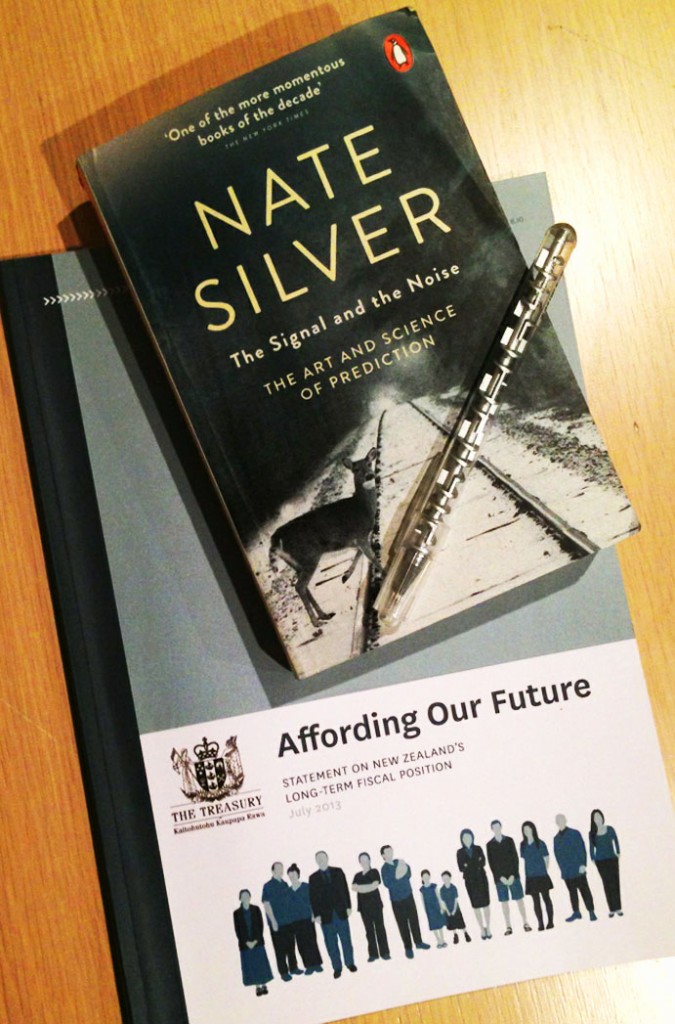 Big congrats to Treasury for launching their Affording Our Future: Statement on New Zealand’s Long-Term Fiscal Position earlier this month (you can watch the release here). This is a great initiative, thinking forty years into the future. This report reminded me of Isaiah Berlin’s essay The Hedgehog and the Fox – where he separates writers and thinkers into those who have one single defining idea, and those who draw on a wide range of experiences and complexities. The best forecasters think like a fox – analysing uncertainty and complexity (Part 1: Future fiscal challenges) and identifying alternative pathways to the future (Part 2: Options to a more sustainable path). This is a great report for anyone interested in exploring New Zealand’s long-term future. Congrats to the team at Treasury for thinking like a fox.
Big congrats to Treasury for launching their Affording Our Future: Statement on New Zealand’s Long-Term Fiscal Position earlier this month (you can watch the release here). This is a great initiative, thinking forty years into the future. This report reminded me of Isaiah Berlin’s essay The Hedgehog and the Fox – where he separates writers and thinkers into those who have one single defining idea, and those who draw on a wide range of experiences and complexities. The best forecasters think like a fox – analysing uncertainty and complexity (Part 1: Future fiscal challenges) and identifying alternative pathways to the future (Part 2: Options to a more sustainable path). This is a great report for anyone interested in exploring New Zealand’s long-term future. Congrats to the team at Treasury for thinking like a fox.
I was reminded of this essay while reading a recent book by Nate Silver – The Signal and the Noise: The art and science of prediction (2012). He talks about a Professor from Berkeley called Philip Tetlock. He studied the art of prediction from 1987 and divided experts along a spectrum, between what he called foxes and hedgehogs. Hedgehogs are Type A personalities who believe in big ideas (e.g. Malcolm Gladwell). In contrast, foxes are scrappy individuals who believe in a plethora of little ideas and multiple approaches to problem solving. If hedgehogs are hunters – always looking out for the big kill, then foxes are gatherers – the fox knows many little things but the hedgehog knows one big thing. Tetlock found that foxes were considerably better at forecasting that hedgehogs. If you find the paperback, there is a table on page 54 that describes the attitudes of foxes and hedgehogs; the chapter closes with three principles on how to be more ‘foxy’:
Principle 1: Think Probabilistically (articulate a range of possible outcomes; hedgehogs can be too stubborn to learn from their mistakes)
Principle 2: Today’s Forecast is the First Forecast of the Rest of Your life (e.g. always a blank canvas; it takes courage to change a forecast)
Principle 3: Look for Consensus (Foxes don’t get hooked on a big idea, they focus on solving the problem)
Treasury’s report does all of these, great result – both the report and Silver’s book are well worth a read. So to the LongtermNZers out there, those who attended the workshop last December, don’t be a hedgehog, start the conversation!
Have a great weekend, Wendy
